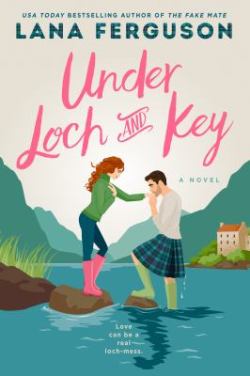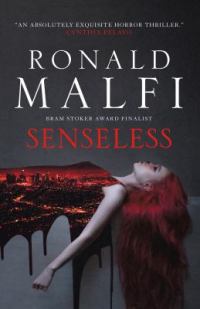If you’re looking for children’s books about saying goodbye, moving house, or change, I have gathered a list of picture books published in 2024 and 2025 that deal with these topics. These books can help with managing the anxiety and stress of leaving the familiar for something new. As of this writing, all of these titles are owned by the Davenport Public Library. Descriptions are provided by the publishers.
 Anything by Rebecca Stead, illustrated by Gracey Zhang
Anything by Rebecca Stead, illustrated by Gracey Zhang
What’s more powerful than a secret wish? A wish you say out loud.
Anything paints a tender picture of a father and daughter moving into a new home. Dad brings a birthday cake for the new apartment to celebrate their new beginning and tells his daughter she can wish for anything (or, more precisely, ‘three Anythings’). Over the course of the day, she wishes for some of her favorite things, including a rainbow and ‘the biggest slice of pizza in the whole world.”
But she keeps some of her wishes inside. Because what she really wants is to go back home to their old apartment, with its big blue bathtub and space in the closet for hide-and-seek. When she finally admits this last wish, her dad takes her on a journey, and by the book’s final pages, she is home . . .in every way that matters. – Chronicle Books
 A Book of Maps for You by Lourdes Heuer, illustrated by Maxwell Eaton III
A Book of Maps for You by Lourdes Heuer, illustrated by Maxwell Eaton III
What if you moved into a new house and found a secret guidebook? Look inside buildings and search for surprises in this enthralling, interactive book of maps.
In A Book of Maps for You, a young cartographer leaves a one-of-a-kind gift behind for the kid moving into his old house. He’s drawn and annotated maps of all the neighborhood places of interest—no playground, reading nook, or chicken coop left uncharted.
During a big move, a child can feel a lot of pressure to be excited for the future, to open their heart to the place they’re headed. But the roads they’ve been down hundreds of times, the familiar faces, and the house where they know every noisy pipe and leaky faucet all deserve care, too.
A Book of Maps for You honors the homes we leave behind and the ones we haven’t met yet, reminding us that they may just be two sides of the same coin. Lourdes Heuer’s attentive text speaks volumes in each word, and Maxwell Eaton III’s signature detail-rich illustrations call for re-reads to drink in and explore every page. – Neal Porter Books
 Being Home by Traci Sorell, illustrated by Michaela Goade
Being Home by Traci Sorell, illustrated by Michaela Goade
Today is a day of excitement—it’s time to move! As a young Cherokee girl says goodbye to the swing, the house, and the city she’s called home her whole life, she readies herself for the upcoming road trip. While her mother drives, the girl draws the changing landscape outside her window. She looks forward to the end of the journey, where she’ll eat the feast her family has prepared, play in the creek with her cousins, and settle into the new rhythm of home.
With warm, expressive artwork and spare, lyrical prose, the story of a young girl’s move toward rather than away from home unfolds. – Kokila
 Home is a Wish written and illustrated Julia Kuo
Home is a Wish written and illustrated Julia Kuo
A deeply moving, gorgeously illustrated picture book about leaving home and finding a new place to fit in, for anyone dealing with a move, to another town or to a new country.
Sometimes we leave home in the mornings, in the evenings, or for much longer. But we always come back.
Home becomes a wish when we move, when the new place isn’t the same. Everything might be different: the sounds, the smell, the people, the weather.
But home isn’t just a place. We carry home in our hearts, and it can grow and change as we do in our lives. With time, new faces become friends, and what is different becomes familiar.
Home can be a wish that comes true.
Like Evelyn Del Rey Is Moving Away and The Day You Begin, this beautiful exploration of what it’s like to deal with a big change is personal, emotionally resonant, and relatable. With page after lovely page of captivating art, New York Times bestselling illustrator Julia Kuo has created a lasting story about how time, patience, and an open heart can help someone feel at home anywhere in the world. – Roaring Book Press
 A Moving Story by Beth Ferry and Tom Lichtenheld, pictures by Tom Booth
A Moving Story by Beth Ferry and Tom Lichtenheld, pictures by Tom Booth
A sweet and uplifting story about trying, failing, and never-ending kindness.
With the utmost care, brothers and professional movers Tiny and Pete will move anything anywhere because they know that nothing is too small or too light to wrap up tight and treat just right. But during their biggest move yet, a young panda’s pet turtle goes missing and even the brothers’ efforts might not be enough to save the day.
Full of fun word play and humor, this hopeful and empowering story is sure to move readers to feel big feelings and, most importantly, laugh. Perfect for fans of Ryan T. Higgins and Jory John. – HarperCollins
 Space for Everyone by Seina Wedlick, illustrated by Camilla Sucre
Space for Everyone by Seina Wedlick, illustrated by Camilla Sucre
This lyrical and heartwarming picture book follows a Nigerian girl who worries about her family’s upcoming move. But she soon realizes that no matter where they go, there will always be room at their kitchen table for her community to gather around.
When Zainab runs down the stairs in the morning, she knows what she’ll find: Papa cooking at the stove, Mama pouring tea, and then everyone gathering around the family table. Neighbors stop by, and there’s plenty of room for them, too. There are so many beloved rituals that happen at the table: homework and crafts, aunties coming to plait hair, and festive gatherings with neighbors and relatives. But soon boxes start piling up around the house, and Zainab worries about the move—will the rituals feel the same in her new home?
In the new house, the family table still feels cozy to sit around. And soon, old neighbors and new friends stop by, and everyone is welcome at the table. Meg Medina’s Evelyn Del Ray is Moving Away meets Peter H. Reynolds’s Our Table in this heartwarming story about how difficult it is to move, but how connecting with community makes everything better. – Random House Studio
 A Terrible Place for a Nest by Sara Levine, illustrated by Erika Meza
A Terrible Place for a Nest by Sara Levine, illustrated by Erika Meza
Juno and his mom have just moved into a new home, and he hates everything about it – the new school, his new classmates, his new room.
Just outside his window, Juno notices a family of mourning doves have started a nest atop the fence, and they seem to be struggling to make it work, too. Sure enough, Juno concludes this new place is a terrible place to build a nest.
But, as winter turns to spring and the doves grow, so does Juno. And while this new place may be scary and sometimes lonely, they will all make it work, together.
Lyrical and hopeful, A Terrible Place for a Nest is a tender and uplifting tale about facing new experiences with empathy and courage. – Roaring Book Press
 Welcome Home, Esmerelda by Daniela Ramirez, illustrated by Maribel Lechuga
Welcome Home, Esmerelda by Daniela Ramirez, illustrated by Maribel Lechuga
From a military family, Esmerelda discovers that home is where she’s always welcomed—thanks to music, dance, and the big, unconditional love from her extended family.
An ideal picture book for kindergarteners and 1st graders who are moving, need reassurances during a transition, and could use the reminder that home is family.
Papa’s job in the military has taken Esmerelda and her family all over the world—and yet she’s never lived in the United States. Now she and her family are moving to San Antonio, Texas.
Although many of her extended family members live there, Esmerelda is unsure it’ll feel like home. Even more, she’s unsure she will fit in. Gradually, music and her sweet abuela spark bravery and the realization that home is not always a place—it’s familia.
Heartwarming and hopeful, Welcome Home, Esmerelda will provide reassurance to any kid that while moving and change are difficult, you have the support of loved ones to help you through it. – Charlesbridge
 “You are not who you are because of where you come from; you are who you are because of where you choose to go.”
“You are not who you are because of where you come from; you are who you are because of where you choose to go.”



























